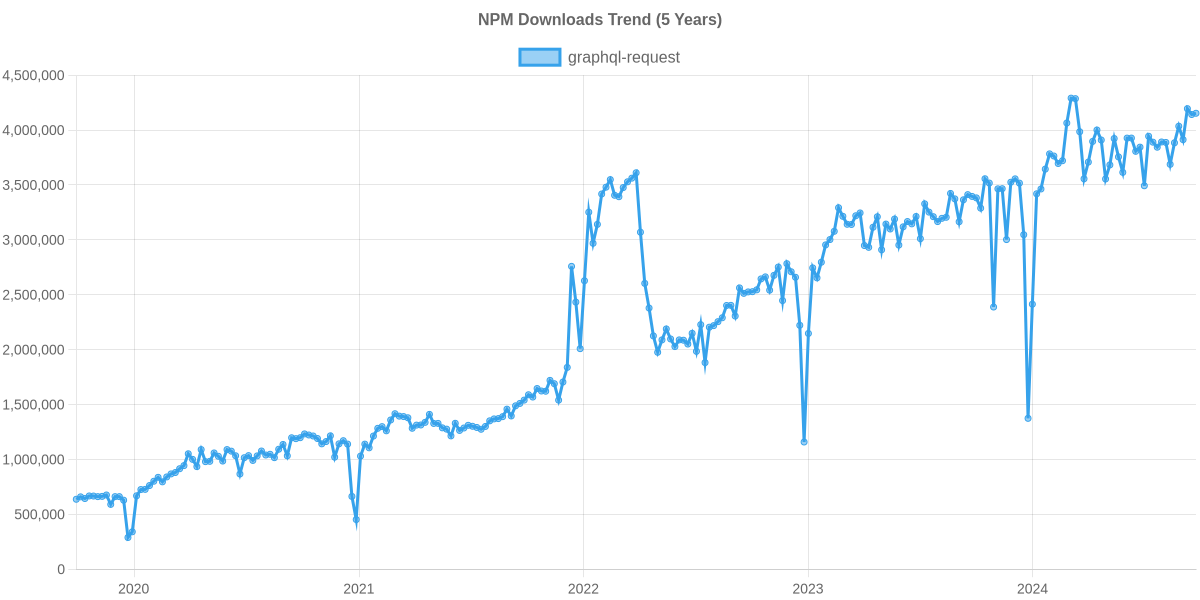Complexity and Size
- graphql-request:
graphql-request is extremely lightweight and has a minimal API, making it easy to use for simple GraphQL queries without the need for a complex setup.
- @urql/core:
@urql/core is designed to be lightweight and modular, allowing developers to include only the features they need. This makes it easy to integrate into existing projects without adding unnecessary bloat.
- apollo-client:
Apollo Client is a more comprehensive library that comes with a larger bundle size due to its extensive features, including built-in caching and state management. This can be beneficial for complex applications but may be overkill for simpler use cases.
Caching Mechanism
- graphql-request:
graphql-request does not include built-in caching capabilities, which means developers need to implement their own caching strategies if needed. This can be beneficial for small projects where caching is not a priority.
- @urql/core:
@urql/core offers a customizable caching mechanism that allows developers to define how data is cached and updated. This flexibility can lead to optimized performance based on specific application needs.
- apollo-client:
Apollo Client provides a powerful caching system out of the box, which automatically manages data updates and synchronization. It supports normalized caching, making it easier to manage related data across queries.
Integration and Ecosystem
- graphql-request:
graphql-request is framework-agnostic and can be used in any JavaScript environment. However, it lacks the extensive ecosystem and tooling that Apollo provides, making it less suitable for larger applications.
- @urql/core:
@urql.core integrates well with React and other frameworks, providing hooks and utilities that make it easy to use within component-based architectures. It also supports subscriptions and real-time updates.
- apollo-client:
Apollo Client has a rich ecosystem with tools like Apollo Server and Apollo Studio, making it a robust choice for full-stack applications. It also offers excellent support for various frameworks, including React, Angular, and Vue.
Learning Curve
- graphql-request:
graphql-request is very easy to learn and use, making it ideal for beginners or those looking to quickly implement GraphQL queries without the complexity of a full client.
- @urql/core:
@urql/core has a moderate learning curve, especially for developers familiar with React hooks. Its modular nature allows for gradual learning as features are added to the application.
- apollo-client:
Apollo Client has a steeper learning curve due to its extensive features and concepts like caching, local state management, and optimistic UI updates. However, it provides comprehensive documentation and community support.
Flexibility and Customization
- graphql-request:
graphql-request is straightforward and minimalistic, which allows for quick integration but offers less flexibility compared to the other two libraries. It is best suited for simple use cases where minimal configuration is needed.
- @urql/core:
@urql/core is highly customizable, allowing developers to create tailored solutions for their specific use cases. This flexibility is beneficial for applications with unique data fetching requirements.
- apollo-client:
Apollo Client offers a lot of built-in functionality, which can sometimes limit flexibility. However, it provides many configuration options to adapt to various scenarios, making it versatile for different applications.










